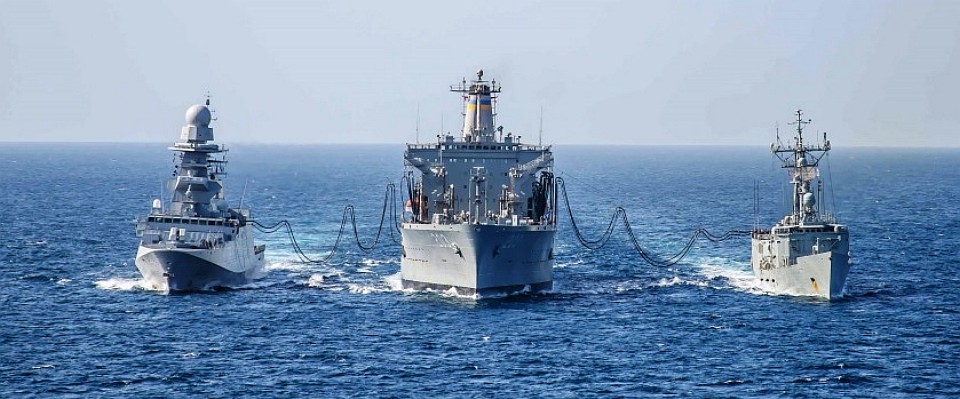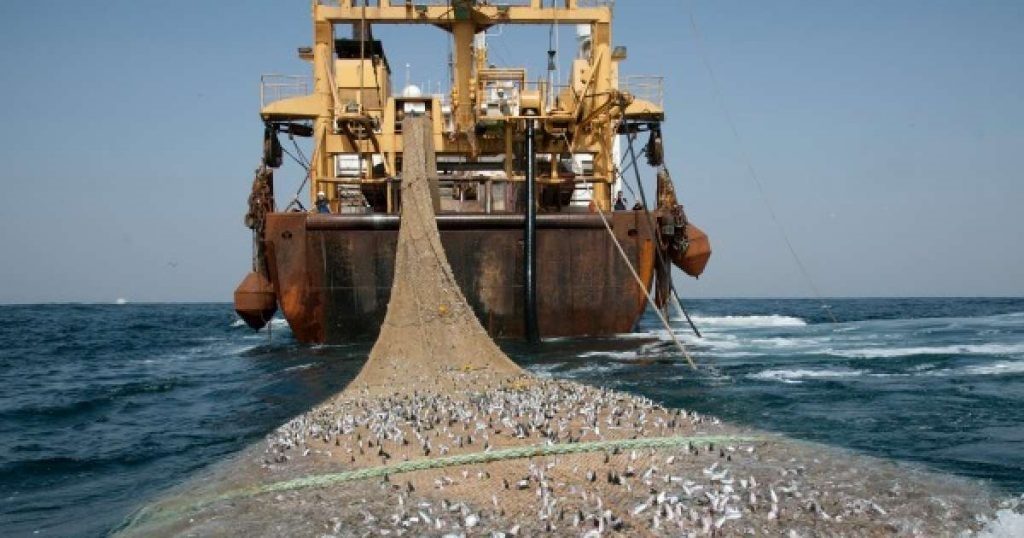By Mohamed Aidarus
Somalia’s coast has become home to illegal fishing and toxic wastes. It’s difficult to expose every illegal maritime activity in Somalia waters but I would like to shed some light on the lucid theft and toxic wastes which foreigners dump on Somalia’s seashore time and again.

Somalia is not the only nation-state in this planet that is a victim to the illegal fishing and the waste dumping, but for certain Somalia is more vulnerable to these threats and we inherit the vilest aftermath.
To put it in a nutshell, illegal fishing is inherently a global phenomenon as sea-food become one of the most traded food products around the globe. The countries most vulnerable to illegal fishing are those with weak governance system and insufficient capacity to patrol their waters.
Somalia has the longest coast in Africa with a coastline of 3,300 kilometers long and home to fertile patch for tuna, sardines and mackerel, and other lucrative species of seafood, including lobsters and sharks. Somalia’s rule of law and enforcement became weaker after the disintegration of the country into clan-based fiefdoms and this long coast turned into “free-for-all’’.
Taking advantage of a lack of central government in Somalia, Illegal fishers from the world corners moved to Somalia water territories to exploit and steal the marine resources of Somalia. What’s is more, mercenaries from the industrial world dump toxic and nuclear waste in Somalia’s shore.
The foreigner trawlers arm with latest munitions so they aggressively deny fishers to get access to the sea and this prevents resident fishers from fishing in areas where the foreign trawlers are operating, and the locals are less likely to identify the nationalities of these thieves since they fly spurious flags to lead them astray. Moreover, the trawlers endanger the lives of the fishers and destroy their equipment. The small-scale fishers are physically and economically victims of these foreigner trawlers.
Undoubtedly, the main impelling force that inspired pirates to emerge was the illegal fishing. The illegal trawlers use prohibited fishing methods like drifts, dynamiting, breaking coral reefs and this results in lots of dead fish to float near the shores.
Before the second emergence of Somali pirates, I spent a couple of months of summer vacation in a village which lies on the Indian Ocean. In fact, during the night-time, I used to see lots of ships arriving at the near-seashore and resemble a big-beautiful city on the sea with many lights. Shortly after emerging of pirates, let-alone the cargo ships en route to the world, illegal trawlers have distanced. But now, as fishermen tell, the trawlers who have licenses from state members of Somalia operate in the near-shore and they deliberately destroy fishing nets and practice a massive trawling even in the day-time.
Hassan Ali Hersi, a small-scale fisherman said in an interview with Aljazeera English “fishing is not profitable as it used to be if we want to make any good catch we have to go long distances and illegal fishing boats are often destroy our nets’’.
In December 2018, Somalia has issued a large number of fishing licenses to Chinese operators, even though the agreement with Somali government allows them to have armed guards on the board, and this has raised concerns. And apparently, these are threatening the lives and the livelihood of fishermen.

According to the UN report, the illegal vessels steal $300 million worth of seafood from Somalia’s coastline each year and this led to a reduced catch, unemployment and environmental degradation. The illegal vessels are mainly from Italy, Pakistan, India, Korea, Yemen, Iran, Spain, Taiwan and Japan. The international navies in Somalia waters claim to guard Somali coast but on the contrary, they are engaged in the exploitation of the sea sources.
Former UN special envoy for Somalia, Ahmedou Ould Abdallah has repeatedly mentioned that his organization has reliable information that European and Asian companies dump wastes -including nuclear waste in Somalia and the region at large.
In Somalia, nuclear waste dumping started the early 1980s and millions of tons of wastes had been exported to Somalia but it rose steeply after the collapse of the central government of Somalia. The hazardous waste dumped along Somalia’s coast comprised uranium radioactive waste, lead, cadmium, mercury, industrial, hospital, chemical, leather treatment and other toxic waste in containers or leaking barrels, dumpers of waste products on Somalia sea-shore are European countries predominantly Spain, Italy, Greece and eventually United kingdom and others. The Tsunami of 2004 brought much of the evidence on the shores and stirred up hazardous waste deposits of some villages along Somalia coast and this has led health and environmental problems.
Extremely bizarre diseases like cancer, skin disease, mouth ulcer, and respiratory infections have gone through the roof these years in Somalia particularly villages along the Somali coast, and this can likely relate to these toxics as many UN reports cited. Birth defects and congenital limb defects have also emerged thoroughly.
Since my childhood, I have been hearing that Somalia is a toxic dumping ground, and this is an open secret to every Somali national but we, Somalis have a little evidence about toxic dumping on the sea. Alas, defenselessly and helplessly, Somalis are keeping eyes on this intergenerational peril in a deafening silence.
Personally, I watched a clip where Somali teenagers playing on barrels which are the leftovers of the nuclear toxics dumped in Somalia coast. What is devastating is, that the juveniles had no understanding at all about the hazards of these barrels but used it as a fan.
Three decades of ups and downs went by, Somalia still is struggling to regain its power to control its sovereignty, but when you look how Somalis are seeking the way-outs, it seems that dream of having a strong government to come up is in a middle of nowhere.
In fact, Somalia’s sea is too vast for surveillance, thus, efforts to clamp down on the illegal fishing and waste dumping rely on maritime forces with aircraft and patrol vessels to monitor, detect and respond illicit fishing and toxic dumping across the ocean, and this is expensive even for the richest nations in the world, let-alone a failed nation like Somalia.
It would be better the Somali government to truck every vessel which enters Somalia’s territorial water and even those with the legal licenses by making vessels and their locations identifiable but literally, all this way-outs rely on strong and functioning government and the lack of law enforcement is the root-cause of these problems. Thereby, to tackle problems as far-reaching and complex as illegal fishing & waste dumping, a comprehensive national and global system of enforcement is needed.
Mohamed Aidarus M.
Email: [email protected]
__________________
Related Articles ( Somali version )
Musuqmaasuq waa Soomaali mahereddeediiye W/Q Yuusuf Xayd
We welcome the submission of all articles for possible publication on WardheerNews.com. WardheerNews will only consider articles sent exclusively. Please email your article today . Opinions expressed in this article are those of the author and do not necessarily reflect the views of WardheerNews.
WardheerNew’s tolerance platform is engaging with diversity of opinion, political ideology and self-expression. Tolerance is a necessary ingredient for creativity and civility.Tolerance fuels tenacity and audacity.
WardheerNews waxay tixgelin gaara siinaysaa maqaaladaha sida gaarka ah loogu soo diro ee aan lagu daabicin goobo kale. Maqaalkani wuxuu ka turjumayaa aragtida Qoraaga loomana fasiran karo tan WardheerNews.
Copyright © 2024 WardheerNews, All rights reserved


